afterLoad (456.48KB) (434μs)
afterInitialise (1.27MB) (62.08ms)
afterRoute (870.38KB) (38.04ms)
beforeRenderComponent com_tags (21.13KB) (230μs)
afterRenderComponent com_tags (2.17MB) (266ms)
afterDispatch (27.06KB) (11.05ms)
beforeRenderRawModule mod_articles_category (READ MORE...) (372.12KB) (19.15ms)
Before Access::preloadComponents (all components) (56.7KB) (524μs)
After Access::preloadComponents (all components) (117.8KB) (5.08ms)
Before Access::getAssetRules (id:8 name:com_content) (840B) (17μs)
After Access::getAssetRules (id:8 name:com_content) (7.05KB) (37μs)
afterRenderRawModule mod_articles_category (READ MORE...) (5.08KB) (193ms)
beforeRenderRawModule mod_tags_popular (Search) (4.81KB) (28μs)
afterRenderRawModule mod_tags_popular (Search) (1.57KB) (88.56ms)
beforeRenderRawModule mod_custom (Remember to download Heart Healthy Seniors) (816B) (25μs)
afterRenderRawModule mod_custom (Remember to download Heart Healthy Seniors) (4.86KB) (205μs)
beforeRenderRawModule mod_custom (Get additionel and more detailed knowledge ) (752B) (13μs)
afterRenderRawModule mod_custom (Get additionel and more detailed knowledge ) (1.67KB) (24μs)
beforeRenderRawModule mod_custom (BOOST YOUR IMMUNE DEFENSE) (608B) (9μs)
afterRenderRawModule mod_custom (BOOST YOUR IMMUNE DEFENSE) (928B) (20μs)
beforeRenderRawModule mod_custom (Are you taking supplements) (736B) (9μs)
afterRenderRawModule mod_custom (Are you taking supplements) (1.03KB) (17μs)
beforeRenderRawModule mod_custom (Antiaging) (720B) (8μs)
afterRenderRawModule mod_custom (Antiaging) (1.02KB) (16μs)
beforeRenderRawModule mod_custom (Exercise) (720B) (8μs)
afterRenderRawModule mod_custom (Exercise) (1.02KB) (16μs)
beforeRenderRawModule mod_custom (Check this before you buy a Q10 product) (752B) (8μs)
afterRenderRawModule mod_custom (Check this before you buy a Q10 product) (944B) (16μs)
beforeRenderRawModule mod_custom (Chronic fatigue tied Alan to his bed but Q10 capsules saved him:) (245.53KB) (7.25ms)
afterRenderRawModule mod_custom (Chronic fatigue tied Alan to his bed but Q10 capsules saved him:) (960B) (43μs)
beforeRenderModule mod_custom (Chronic fatigue tied Alan to his bed but Q10 capsules saved him:) (768B) (4μs)
afterRenderModule mod_custom (Chronic fatigue tied Alan to his bed but Q10 capsules saved him:) (1.3KB) (3.1ms)
beforeRenderRawModule mod_custom (Cholesterol-lowering without side effects:) (368B) (24μs)
afterRenderRawModule mod_custom (Cholesterol-lowering without side effects:) (2.19KB) (41μs)
beforeRenderModule mod_custom (Cholesterol-lowering without side effects:) (752B) (2μs)
afterRenderModule mod_custom (Cholesterol-lowering without side effects:) (1.28KB) (39μs)
beforeRenderModule mod_articles_category (READ MORE...) (21.32KB) (349μs)
afterRenderModule mod_articles_category (READ MORE...) (1.25KB) (39μs)
beforeRenderModule mod_tags_popular (Search) (5.17KB) (12μs)
afterRenderModule mod_tags_popular (Search) (1.27KB) (22μs)
beforeRenderModule mod_custom (Remember to download Heart Healthy Seniors) (1.17KB) (10μs)
afterRenderModule mod_custom (Remember to download Heart Healthy Seniors) (1.3KB) (23μs)
beforeRenderModule mod_custom (Get additionel and more detailed knowledge ) (368B) (9μs)
afterRenderModule mod_custom (Get additionel and more detailed knowledge ) (1.3KB) (18μs)
beforeRenderModule mod_custom (BOOST YOUR IMMUNE DEFENSE) (224B) (9μs)
afterRenderModule mod_custom (BOOST YOUR IMMUNE DEFENSE) (1.28KB) (18μs)
beforeRenderModule mod_custom (Are you taking supplements) (352B) (7μs)
afterRenderModule mod_custom (Are you taking supplements) (1.28KB) (18μs)
beforeRenderModule mod_custom (Antiaging) (336B) (8μs)
afterRenderModule mod_custom (Antiaging) (1.27KB) (19μs)
beforeRenderModule mod_custom (Exercise) (336B) (7μs)
afterRenderModule mod_custom (Exercise) (1.25KB) (18μs)
beforeRenderModule mod_custom (Check this before you buy a Q10 product) (352B) (3.66ms)
afterRenderModule mod_custom (Check this before you buy a Q10 product) (1.28KB) (63μs)
beforeRenderRawModule mod_menu (Main menu-US) (20.94KB) (3.65ms)
afterRenderRawModule mod_menu (Main menu-US) (158.16KB) (3.57ms)
beforeRenderModule mod_menu (Main menu-US) (720B) (4μs)
afterRenderModule mod_menu (Main menu-US) (4.36KB) (47μs)
beforeRenderRawModule mod_languages (Sprogskift) (3.44KB) (14μs)
afterRenderRawModule mod_languages (Sprogskift) (26.79KB) (4.47ms)
beforeRenderModule mod_languages (Sprogskift) (720B) (6μs)
afterRenderModule mod_languages (Sprogskift) (5.31KB) (19μs)
beforeRenderRawModule mod_finder () (6.34KB) (10μs)
afterRenderRawModule mod_finder () (214.16KB) (6.94ms)
beforeRenderModule mod_finder () (704B) (4μs)
afterRenderModule mod_finder () (5.79KB) (32μs)
beforeRenderRawModule mod_custom () (6.62KB) (124μs)
afterRenderRawModule mod_custom () (22.7KB) (3.11ms)
beforeRenderModule mod_custom () (704B) (5μs)
afterRenderModule mod_custom () (1.23KB) (45μs)
beforeRenderRawModule mod_menu (Main menu-US) (5.07KB) (94μs)
afterRenderRawModule mod_menu (Main menu-US) (5.8KB) (2.62ms)
beforeRenderModule mod_menu (Main menu-US) (720B) (4μs)
afterRenderModule mod_menu (Main menu-US) (1.25KB) (43μs)
beforeRenderRawModule mod_languages (Sprogskift Mobil) (912B) (17μs)
afterRenderRawModule mod_languages (Sprogskift Mobil) (3.89KB) (1.92ms)
beforeRenderModule mod_languages (Sprogskift Mobil) (720B) (5μs)
afterRenderModule mod_languages (Sprogskift Mobil) (1.27KB) (31μs)
beforeRenderRawModule mod_finder () (2.3KB) (10μs)
afterRenderRawModule mod_finder () (6.25KB) (3.18ms)
beforeRenderModule mod_finder () (704B) (5μs)
afterRenderModule mod_finder () (1.23KB) (44μs)
beforeRenderRawModule mod_custom () (8.66KB) (192μs)
afterRenderRawModule mod_custom () (904B) (125μs)
beforeRenderModule mod_custom () (704B) (3μs)
afterRenderModule mod_custom () (2.43KB) (23μs)
beforeRenderRawModule mod_custom () (688B) (78μs)
afterRenderRawModule mod_custom () (896B) (94μs)
beforeRenderModule mod_custom () (704B) (3μs)
afterRenderModule mod_custom () (2.71KB) (20μs)
afterRender (412.24KB) (15.01ms)
| 1 x afterRenderComponent com_tags (2.17MB) (35.32%) | 265.67ms |
| 1 x afterRenderRawModule mod_articles_category (READ MORE...) (5.08KB) (25.69%) | 193.24ms |
| 1 x afterRenderRawModule mod_tags_popular (Search) (1.57KB) (11.77%) | 88.56ms |
| 1 x afterInitialise (1.27MB) (8.25%) | 62.08ms |
| 1 x afterRoute (870.38KB) (5.06%) | 38.04ms |
| 1 x beforeRenderRawModule mod_articles_category (READ MORE...) (372.12KB) (2.55%) | 19.15ms |
| 1 x afterRender (412.24KB) (2%) | 15.01ms |
| 1 x afterDispatch (27.06KB) (1.47%) | 11.05ms |
| 1 x beforeRenderRawModule mod_custom (Chronic fatigue tied Alan to his bed but Q10 capsules saved him:) (245.53KB) (0.96%) | 7.25ms |
| 1 x afterRenderRawModule mod_finder () (214.16KB) (0.92%) | 6.94ms |
| 1 x After Access::preloadComponents (all components) (117.8KB) (0.68%) | 5.08ms |
| 1 x afterRenderRawModule mod_languages (Sprogskift) (26.79KB) (0.59%) | 4.47ms |
| 1 x beforeRenderModule mod_custom (Check this before you buy a Q10 product) (352B) (0.49%) | 3.66ms |
| 1 x beforeRenderRawModule mod_menu (Main menu-US) (20.94KB) (0.49%) | 3.65ms |
| 1 x afterRenderRawModule mod_menu (Main menu-US) (158.16KB) (0.47%) | 3.57ms |
| 1 x afterRenderRawModule mod_finder () (6.25KB) (0.42%) | 3.18ms |
| 1 x afterRenderRawModule mod_custom () (22.7KB) (0.41%) | 3.11ms |
| 1 x afterRenderModule mod_custom (Chronic fatigue tied Alan to his bed but Q10 capsules saved him:) (1.3KB) (0.41%) | 3.10ms |
| 1 x afterRenderRawModule mod_menu (Main menu-US) (5.8KB) (0.35%) | 2.62ms |
| 1 x afterRenderRawModule mod_languages (Sprogskift Mobil) (3.89KB) (0.26%) | 1.92ms |
| 1 x Before Access::preloadComponents (all components) (56.7KB) (0.07%) | 524μs |
| 1 x afterLoad (456.48KB) (0.06%) | 434μs |
| 1 x beforeRenderModule mod_articles_category (READ MORE...) (21.32KB) (0.05%) | 349μs |
| 1 x beforeRenderComponent com_tags (21.13KB) (0.03%) | 230μs |
| 1 x afterRenderRawModule mod_custom (Remember to download Heart Healthy Seniors) (4.86KB) (0.03%) | 205μs |
| 1 x beforeRenderRawModule mod_custom () (8.66KB) (0.03%) | 192μs |
| 1 x afterRenderRawModule mod_custom () (904B) (0.02%) | 125μs |
| 1 x beforeRenderRawModule mod_custom () (6.62KB) (0.02%) | 124μs |
| 1 x beforeRenderRawModule mod_menu (Main menu-US) (5.07KB) (0.01%) | 94μs |
| 1 x afterRenderRawModule mod_custom () (896B) (0.01%) | 94μs |
| 1 x beforeRenderRawModule mod_custom () (688B) (0.01%) | 78μs |
| 1 x afterRenderModule mod_custom (Check this before you buy a Q10 product) (1.28KB) (0.01%) | 63μs |
| 1 x afterRenderModule mod_menu (Main menu-US) (4.36KB) (0.01%) | 47μs |
| 1 x afterRenderModule mod_custom () (1.23KB) (0.01%) | 45μs |
| 1 x afterRenderModule mod_finder () (1.23KB) (0.01%) | 44μs |
| 1 x afterRenderRawModule mod_custom (Chronic fatigue tied Alan to his bed but Q10 capsules saved him:) (960B) (0.01%) | 43μs |
| 1 x afterRenderModule mod_menu (Main menu-US) (1.25KB) (0.01%) | 43μs |
| 1 x afterRenderRawModule mod_custom (Cholesterol-lowering without side effects:) (2.19KB) (0.01%) | 41μs |
| 1 x afterRenderModule mod_custom (Cholesterol-lowering without side effects:) (1.28KB) (0.01%) | 39μs |
| 1 x afterRenderModule mod_articles_category (READ MORE...) (1.25KB) (0.01%) | 39μs |
| 1 x After Access::getAssetRules (id:8 name:com_content) (7.05KB) (0%) | 37μs |
| 1 x afterRenderModule mod_finder () (5.79KB) (0%) | 32μs |
| 1 x afterRenderModule mod_languages (Sprogskift Mobil) (1.27KB) (0%) | 31μs |
| 1 x beforeRenderRawModule mod_tags_popular (Search) (4.81KB) (0%) | 28μs |
| 1 x beforeRenderRawModule mod_custom (Remember to download Heart Healthy Seniors) (816B) (0%) | 25μs |
| 1 x afterRenderRawModule mod_custom (Get additionel and more detailed knowledge ) (1.67KB) (0%) | 24μs |
| 1 x beforeRenderRawModule mod_custom (Cholesterol-lowering without side effects:) (368B) (0%) | 24μs |
| 1 x afterRenderModule mod_custom () (2.43KB) (0%) | 23μs |
| 1 x afterRenderModule mod_custom (Remember to download Heart Healthy Seniors) (1.3KB) (0%) | 23μs |
| 1 x afterRenderModule mod_tags_popular (Search) (1.27KB) (0%) | 22μs |
| 1 x afterRenderModule mod_custom () (2.71KB) (0%) | 20μs |
| 1 x afterRenderRawModule mod_custom (BOOST YOUR IMMUNE DEFENSE) (928B) (0%) | 20μs |
| 1 x afterRenderModule mod_custom (Antiaging) (1.27KB) (0%) | 19μs |
| 1 x afterRenderModule mod_languages (Sprogskift) (5.31KB) (0%) | 19μs |
| 1 x afterRenderModule mod_custom (Get additionel and more detailed knowledge ) (1.3KB) (0%) | 18μs |
| 1 x afterRenderModule mod_custom (BOOST YOUR IMMUNE DEFENSE) (1.28KB) (0%) | 18μs |
| 1 x afterRenderModule mod_custom (Are you taking supplements) (1.28KB) (0%) | 18μs |
| 1 x afterRenderModule mod_custom (Exercise) (1.25KB) (0%) | 18μs |
| 1 x beforeRenderRawModule mod_languages (Sprogskift Mobil) (912B) (0%) | 17μs |
| 1 x Before Access::getAssetRules (id:8 name:com_content) (840B) (0%) | 17μs |
| 1 x afterRenderRawModule mod_custom (Are you taking supplements) (1.03KB) (0%) | 17μs |
| 1 x afterRenderRawModule mod_custom (Antiaging) (1.02KB) (0%) | 16μs |
| 1 x afterRenderRawModule mod_custom (Exercise) (1.02KB) (0%) | 16μs |
| 1 x afterRenderRawModule mod_custom (Check this before you buy a Q10 product) (944B) (0%) | 16μs |
| 1 x beforeRenderRawModule mod_languages (Sprogskift) (3.44KB) (0%) | 14μs |
| 1 x beforeRenderRawModule mod_custom (Get additionel and more detailed knowledge ) (752B) (0%) | 13μs |
| 1 x beforeRenderModule mod_tags_popular (Search) (5.17KB) (0%) | 12μs |
| 3 x beforeRenderModule mod_custom () (704B) (0%) | 11μs |
| 1 x beforeRenderModule mod_custom (Remember to download Heart Healthy Seniors) (1.17KB) (0%) | 10μs |
| 1 x beforeRenderRawModule mod_finder () (6.34KB) (0%) | 10μs |
| 1 x beforeRenderRawModule mod_finder () (2.3KB) (0%) | 10μs |
| 1 x beforeRenderRawModule mod_custom (BOOST YOUR IMMUNE DEFENSE) (608B) (0%) | 9μs |
| 1 x beforeRenderRawModule mod_custom (Are you taking supplements) (736B) (0%) | 9μs |
| 1 x beforeRenderModule mod_custom (Get additionel and more detailed knowledge ) (368B) (0%) | 9μs |
| 2 x beforeRenderModule mod_finder () (704B) (0%) | 9μs |
| 1 x beforeRenderModule mod_custom (BOOST YOUR IMMUNE DEFENSE) (224B) (0%) | 9μs |
| 1 x beforeRenderRawModule mod_custom (Antiaging) (720B) (0%) | 8μs |
| 1 x beforeRenderRawModule mod_custom (Exercise) (720B) (0%) | 8μs |
| 1 x beforeRenderRawModule mod_custom (Check this before you buy a Q10 product) (752B) (0%) | 8μs |
| 1 x beforeRenderModule mod_custom (Antiaging) (336B) (0%) | 8μs |
| 2 x beforeRenderModule mod_menu (Main menu-US) (720B) (0%) | 8μs |
| 1 x beforeRenderModule mod_custom (Are you taking supplements) (352B) (0%) | 7μs |
| 1 x beforeRenderModule mod_custom (Exercise) (336B) (0%) | 7μs |
| 1 x beforeRenderModule mod_languages (Sprogskift) (720B) (0%) | 6μs |
| 1 x beforeRenderModule mod_languages (Sprogskift Mobil) (720B) (0%) | 5μs |
| 1 x beforeRenderModule mod_custom (Chronic fatigue tied Alan to his bed but Q10 capsules saved him:) (768B) (0%) | 4μs |
| 1 x beforeRenderModule mod_custom (Cholesterol-lowering without side effects:) (752B) (0%) | 2μs |
 The number of older people is constantly increasing, and more and more people suffer from Alzheimer’s disease and other types of dementia. Apparently, seniors who take a daily multivitamin can improve their memory and slow down their cognitive decline, according to a meta-analysis that is published in Journal of Clinical Nutrition. Older people generally have increased need for certain vitamins and minerals because of poor nutrient absorption in the digestive system, impaired enzyme functions, oxidative stress, and regular use of medical drugs that can interact with the nutrients. But how do different vitamins and minerals affect brain health?
The number of older people is constantly increasing, and more and more people suffer from Alzheimer’s disease and other types of dementia. Apparently, seniors who take a daily multivitamin can improve their memory and slow down their cognitive decline, according to a meta-analysis that is published in Journal of Clinical Nutrition. Older people generally have increased need for certain vitamins and minerals because of poor nutrient absorption in the digestive system, impaired enzyme functions, oxidative stress, and regular use of medical drugs that can interact with the nutrients. But how do different vitamins and minerals affect brain health?







 Alzheimer’s disease causes brain malfunctions, and the condition is the leading cause of dementia. According to a studies of humans and mice, there may be a link between borderline vitamin A deficiency and an increased risk of Alzheimer’s disease. Vitamin A is important for the immune system, but it is also a powerful antioxidant that protects neurons and other cells. Vitamin A deficiencies are widespread globally. In the industrialized countries, we mainly see vitamin A deficiencies in connection with unbalanced diets, ageing, and chronic illness.
Alzheimer’s disease causes brain malfunctions, and the condition is the leading cause of dementia. According to a studies of humans and mice, there may be a link between borderline vitamin A deficiency and an increased risk of Alzheimer’s disease. Vitamin A is important for the immune system, but it is also a powerful antioxidant that protects neurons and other cells. Vitamin A deficiencies are widespread globally. In the industrialized countries, we mainly see vitamin A deficiencies in connection with unbalanced diets, ageing, and chronic illness.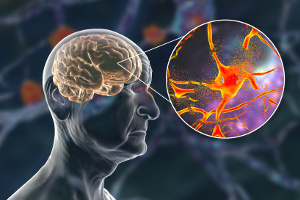 Alzheimer’s is an insidious disease and the leading cause of dementia. It’s also one of the major causes of death in old age. Diet plays a major role in preventing the disease. In fact, having high concentrations of the omega-3 fatty acid, DHA, in the blood can halve the risk of developing Alzheimer’s disease, according to a study that is published in Nutrients. DHA (docosahexaenoic acid) is found in oily fish and fish oil supplements. This essential fatty acid is also found in all our cell membranes (including nerve cells) and plays a key role in maintaining our general health and cognitive skills. Unfortunately, modern diets contain far too little omega-3, but science is not quite sure how much we need.
Alzheimer’s is an insidious disease and the leading cause of dementia. It’s also one of the major causes of death in old age. Diet plays a major role in preventing the disease. In fact, having high concentrations of the omega-3 fatty acid, DHA, in the blood can halve the risk of developing Alzheimer’s disease, according to a study that is published in Nutrients. DHA (docosahexaenoic acid) is found in oily fish and fish oil supplements. This essential fatty acid is also found in all our cell membranes (including nerve cells) and plays a key role in maintaining our general health and cognitive skills. Unfortunately, modern diets contain far too little omega-3, but science is not quite sure how much we need. Apparently so. According to a new study published in the journal Alzheimer’s and Dementia, older people who take a daily multivitamin supplement for several years are far less likely to develop dementia, Alzheimer’s disease, and other types of cognitive decline. The new study supports earlier research where it has been seen that the different vitamins and minerals increase cerebral blood flow and protect neurons. It pays off to choose high-quality supplements to make sure that the nutrients are properly absorbed in the body.
Apparently so. According to a new study published in the journal Alzheimer’s and Dementia, older people who take a daily multivitamin supplement for several years are far less likely to develop dementia, Alzheimer’s disease, and other types of cognitive decline. The new study supports earlier research where it has been seen that the different vitamins and minerals increase cerebral blood flow and protect neurons. It pays off to choose high-quality supplements to make sure that the nutrients are properly absorbed in the body.
 Everyone is affected by electromagnetic radiation from cell phones, device screens, the electricity supply and other electric systems. The brain’s neurons are particularly vulnerable, especially because electromagnetic radiation can increase the neuronal uptake of calcium ions, which makes the neurons overactive and may even cause them to perish. A study published in News Medical Life Sciences shows that too much calcium in the brain increases the risk of Alzheimer’s disease and digital dementia in young individuals. The increased electromagnetic radiation also generates loads of free radicals in the body that can cause oxidative stress and cellular damage because it outperforms the body’s different antioxidants. This was described in an article published in The Journal of Microscopy & Ultrastructure that also mentions how electromagnetic radiation can cause stress, headaches, fatigue, anxiety, and other symptoms.
Everyone is affected by electromagnetic radiation from cell phones, device screens, the electricity supply and other electric systems. The brain’s neurons are particularly vulnerable, especially because electromagnetic radiation can increase the neuronal uptake of calcium ions, which makes the neurons overactive and may even cause them to perish. A study published in News Medical Life Sciences shows that too much calcium in the brain increases the risk of Alzheimer’s disease and digital dementia in young individuals. The increased electromagnetic radiation also generates loads of free radicals in the body that can cause oxidative stress and cellular damage because it outperforms the body’s different antioxidants. This was described in an article published in The Journal of Microscopy & Ultrastructure that also mentions how electromagnetic radiation can cause stress, headaches, fatigue, anxiety, and other symptoms. Vitamin B12 is important for the development of the brain, and young children with low levels of the nutrient are challenged when it comes to solving cognitive tests such as puzzles, letter recognition, and the ability to understand the feelings of other children. Vitamin B12-deficient children are therefore more vulnerable and generally have a more difficult start in life. Researchers have demonstrated this in a study that is published in the American Journal of Clinical Nutrition.
Vitamin B12 is important for the development of the brain, and young children with low levels of the nutrient are challenged when it comes to solving cognitive tests such as puzzles, letter recognition, and the ability to understand the feelings of other children. Vitamin B12-deficient children are therefore more vulnerable and generally have a more difficult start in life. Researchers have demonstrated this in a study that is published in the American Journal of Clinical Nutrition.
 The brain normally only uses blood sugar in the form of glucose. However, people suffering from insulin resistance have impaired cellular uptake of blood sugar, causing an energy shortage of the brain. According to a recent Israeli study, insulin resistance may speed up impairment of the cognitive functions that include the ability to think, speak, and solve problems. Because insulin resistance is an early stage of type-2 diabetes that spreads like an epidemic, there is every reason in the world to start preventing or treating this condition. A few dietary adjustments combined with a blood sugar-regulating trace element may do the trick.
The brain normally only uses blood sugar in the form of glucose. However, people suffering from insulin resistance have impaired cellular uptake of blood sugar, causing an energy shortage of the brain. According to a recent Israeli study, insulin resistance may speed up impairment of the cognitive functions that include the ability to think, speak, and solve problems. Because insulin resistance is an early stage of type-2 diabetes that spreads like an epidemic, there is every reason in the world to start preventing or treating this condition. A few dietary adjustments combined with a blood sugar-regulating trace element may do the trick. Oily fish and fish oil have a high content of the two omega-3 fatty acids, EPA (eicosapentaenoic acid) and DHA (docosahexaenoic acid), that are important for our brain, nervous system, intelligence, and mental health. Modern diets, however, are to blame for our lack of omega-3. A team of scientists from England has found that supplementation with EPA-rich fish oil for 26 weeks improves mental acuity and reaction time in healthy, young adults. This was not the case with DHA-rich oil fish oil, on the other hand. The scientists were surprised to find that EPA is more important than DHA for these cognitive skills.
Oily fish and fish oil have a high content of the two omega-3 fatty acids, EPA (eicosapentaenoic acid) and DHA (docosahexaenoic acid), that are important for our brain, nervous system, intelligence, and mental health. Modern diets, however, are to blame for our lack of omega-3. A team of scientists from England has found that supplementation with EPA-rich fish oil for 26 weeks improves mental acuity and reaction time in healthy, young adults. This was not the case with DHA-rich oil fish oil, on the other hand. The scientists were surprised to find that EPA is more important than DHA for these cognitive skills.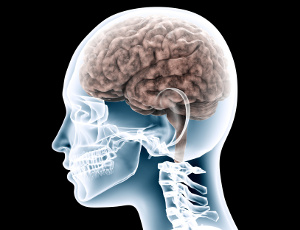 Neuroplasticity refers to the brain ability of brain cells to carry out structural and functional changes that are of vital importance to our development and health. It has been shown that neuroplasticity is impaired in connection with various diseases of the central nervous system, including such conditions as depression and dementia. In a review article that is published in Brain Plasticity, scientists have looked closer at how exercise, the Mediterranean diet, and nutrients like omega-3 and vitamin B12 can improve neuroplasticity by way of a protein called BDNF (brain-derived neurotrophic factor). Selenium is also known to be important for the formation of new brain cells, which can help prevent cognitive decline via other mechanisms.
Neuroplasticity refers to the brain ability of brain cells to carry out structural and functional changes that are of vital importance to our development and health. It has been shown that neuroplasticity is impaired in connection with various diseases of the central nervous system, including such conditions as depression and dementia. In a review article that is published in Brain Plasticity, scientists have looked closer at how exercise, the Mediterranean diet, and nutrients like omega-3 and vitamin B12 can improve neuroplasticity by way of a protein called BDNF (brain-derived neurotrophic factor). Selenium is also known to be important for the formation of new brain cells, which can help prevent cognitive decline via other mechanisms. The rate of autism and ADHD has exploded over the past decades, and the problem comes with an enormous human and socio-economic price tag. A study from the University of Copenhagen has shown that fish oil helps adults with autism and ADHD by improving their attention and working memory. In the study that is published in British Journal of Nutrition, the scientists look closer at omega-3 fatty acids in fish oil and their vital role in the brain and nervous system.
The rate of autism and ADHD has exploded over the past decades, and the problem comes with an enormous human and socio-economic price tag. A study from the University of Copenhagen has shown that fish oil helps adults with autism and ADHD by improving their attention and working memory. In the study that is published in British Journal of Nutrition, the scientists look closer at omega-3 fatty acids in fish oil and their vital role in the brain and nervous system.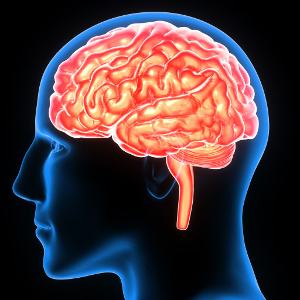 Fish oil contains EPA and DHA, two omega-3 fatty acids with a number of different functions in the brain and nervous system. It appears that middle-aged people who consume more oily fish or who take fish oil supplements have improvements in their brain structure and cognitive skills. This was shown in a study that is published in Neurology. The study results are quite interesting because cognitive decline and dementia are increasing problems that affect millions of people worldwide. The study supports previous research where it was seen that having higher concentrations of DHA in the red blood cell can reduce the risk of Alzheimer’s disease by 50 percent.
Fish oil contains EPA and DHA, two omega-3 fatty acids with a number of different functions in the brain and nervous system. It appears that middle-aged people who consume more oily fish or who take fish oil supplements have improvements in their brain structure and cognitive skills. This was shown in a study that is published in Neurology. The study results are quite interesting because cognitive decline and dementia are increasing problems that affect millions of people worldwide. The study supports previous research where it was seen that having higher concentrations of DHA in the red blood cell can reduce the risk of Alzheimer’s disease by 50 percent.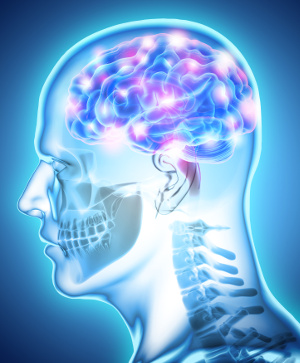 A well-functioning memory is vital for our quality of life. With the increasing number of seniors, however, the dementia rate is on an incline. According to a study that is published in Clinical Nutrition, it looks as if a combination of fish oil and antioxidants such as lutein and zeaxanthin may improve memory in elderly seniors. You can support your brain and memory on a daily basis by eating oily fish or fish oil supplements together with antioxidants from foods such as cabbage, spinach and other leafy greens, and eggs. Another important antioxidant is mezo-zeaxanthin that is found in certain fish and in fish skin.
A well-functioning memory is vital for our quality of life. With the increasing number of seniors, however, the dementia rate is on an incline. According to a study that is published in Clinical Nutrition, it looks as if a combination of fish oil and antioxidants such as lutein and zeaxanthin may improve memory in elderly seniors. You can support your brain and memory on a daily basis by eating oily fish or fish oil supplements together with antioxidants from foods such as cabbage, spinach and other leafy greens, and eggs. Another important antioxidant is mezo-zeaxanthin that is found in certain fish and in fish skin.
 Selenium supports a host of different metabolic processes and serves as an antioxidant that protects our cells. According to recent studies, selenium also has anti-ageing properties that protect us against cardiovascular disease, cancer, dementia, and other age-related diseases. According to a review article published in Medical News Today, selenium also helps against impaired immunity and counteracts chronic inflammation, which is typically seen in connection with ageing processes. A Swedish study of healthy seniors has even showed that supplementation with selenium and Q10 has a positive effect on heart function, quality of life, and life expectancy.
Selenium supports a host of different metabolic processes and serves as an antioxidant that protects our cells. According to recent studies, selenium also has anti-ageing properties that protect us against cardiovascular disease, cancer, dementia, and other age-related diseases. According to a review article published in Medical News Today, selenium also helps against impaired immunity and counteracts chronic inflammation, which is typically seen in connection with ageing processes. A Swedish study of healthy seniors has even showed that supplementation with selenium and Q10 has a positive effect on heart function, quality of life, and life expectancy. Brain cells (neurons) contain comparatively large concentrations of vitamin C, a nutrient that helps us maintain a healthy nervous system in a number of different ways. Scientists have discovered that lack of vitamin C can affect the brain’s neural signaling. Consequently, a vitamin C deficiency can impair memory and other cognitive skills in seniors. This was demonstrated in a study from Flinders University in Australia. Mild cognitive impairment is widespread among older people and represents an early stage of dementia so it is important to get plenty of vitamin C every day throughout life.
Brain cells (neurons) contain comparatively large concentrations of vitamin C, a nutrient that helps us maintain a healthy nervous system in a number of different ways. Scientists have discovered that lack of vitamin C can affect the brain’s neural signaling. Consequently, a vitamin C deficiency can impair memory and other cognitive skills in seniors. This was demonstrated in a study from Flinders University in Australia. Mild cognitive impairment is widespread among older people and represents an early stage of dementia so it is important to get plenty of vitamin C every day throughout life.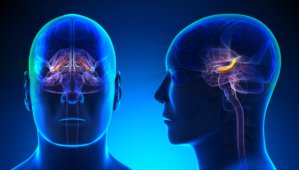 Scientists from Queensland in Australia have discovered that vitamin D is of vital importance to the structure and health of the brain. Also, deficiencies of the nutrient may lead to dysfunctions and loss of cognitive skills plus depression and schizophrenia. More than one billion people worldwide are believed to lack vitamin D. This may have widespread consequences for their health and may even be linked to the huge increase in mental illnesses.
Scientists from Queensland in Australia have discovered that vitamin D is of vital importance to the structure and health of the brain. Also, deficiencies of the nutrient may lead to dysfunctions and loss of cognitive skills plus depression and schizophrenia. More than one billion people worldwide are believed to lack vitamin D. This may have widespread consequences for their health and may even be linked to the huge increase in mental illnesses.
 The number of older people is on the rise, and so is the number of people who suffer from dementia and die as a result of this condition. If you increase your dietary intake of magnesium, however, and get more than what is officially recommended, it helps keep your brain sharp and prevents dementia, according to a large population study that is published in European Journal of Nutrition. Many older people don’t eat enough and even take different kinds of medicine that block the body’s uptake and utilization of magnesium. So, how does magnesium affect the brain and nervous system? And how much do we need to stay mentally alert throughout life? Those are the questions.
The number of older people is on the rise, and so is the number of people who suffer from dementia and die as a result of this condition. If you increase your dietary intake of magnesium, however, and get more than what is officially recommended, it helps keep your brain sharp and prevents dementia, according to a large population study that is published in European Journal of Nutrition. Many older people don’t eat enough and even take different kinds of medicine that block the body’s uptake and utilization of magnesium. So, how does magnesium affect the brain and nervous system? And how much do we need to stay mentally alert throughout life? Those are the questions.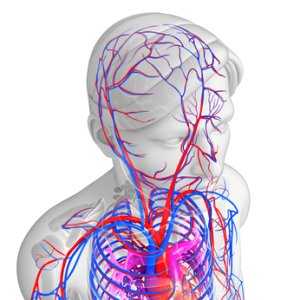 People with elevated levels of omega-3 fatty acids in their blood have better circulation in those parts of the brain that handle learning, language, memory, and other cognitive functions, according to a recent report that is published in the Journal of Alzheimer’s Disease. The scientists also observed a link between blood levels of omega-3 and the rate of dementia and depression. They call their study an important discovery that supports earlier studies, which have shown how simple dietary adjustments such as increasing your intake of oily fish or fish oil supplements help preserve mental skills and a healthy mind.
People with elevated levels of omega-3 fatty acids in their blood have better circulation in those parts of the brain that handle learning, language, memory, and other cognitive functions, according to a recent report that is published in the Journal of Alzheimer’s Disease. The scientists also observed a link between blood levels of omega-3 and the rate of dementia and depression. They call their study an important discovery that supports earlier studies, which have shown how simple dietary adjustments such as increasing your intake of oily fish or fish oil supplements help preserve mental skills and a healthy mind. Schizophrenia is a serious psychotic condition with delusions and hallucinations, which can be very taxing for the sufferer as well as for the rest of the family. Most people experience a slow and gradual worsening of the brain ailment, and the disease may even spread to other organs. On average, people who suffer from schizophrenia die 10 years earlier than the general population, which is why it is vital to prevent the disease or ameliorate its symptoms. Scientists have discovered that supplementing with omega-3 fatty acids has a positive effect for several reasons.
Schizophrenia is a serious psychotic condition with delusions and hallucinations, which can be very taxing for the sufferer as well as for the rest of the family. Most people experience a slow and gradual worsening of the brain ailment, and the disease may even spread to other organs. On average, people who suffer from schizophrenia die 10 years earlier than the general population, which is why it is vital to prevent the disease or ameliorate its symptoms. Scientists have discovered that supplementing with omega-3 fatty acids has a positive effect for several reasons. Schizophrenia, a brain disease, is an extreme burden to the patient as well as to the patient’s family. However, a large meta-analysis published in Psychological Medicine documents that adjuvant therapy with large doses of vitamin B6, vitamin B12 and biotin (vitamin B8) in combination with standard therapy can reduce the symptoms more effectively than standard therapy alone. It is an advantage to start taking high-dosed B vitamin supplements as early as possible in the disease course. There are several reasons why B vitamins have such a great impact on the brain and our mental health
Schizophrenia, a brain disease, is an extreme burden to the patient as well as to the patient’s family. However, a large meta-analysis published in Psychological Medicine documents that adjuvant therapy with large doses of vitamin B6, vitamin B12 and biotin (vitamin B8) in combination with standard therapy can reduce the symptoms more effectively than standard therapy alone. It is an advantage to start taking high-dosed B vitamin supplements as early as possible in the disease course. There are several reasons why B vitamins have such a great impact on the brain and our mental health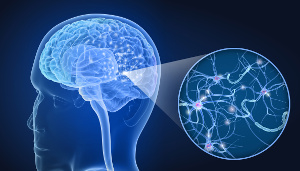 It’s commonly known that physical activity boosts the brain’s ability to form new brain cells – or neurons. Still, the underlying mechanisms have been a mystery to science. A team of Australian scientists, however, has recently discovered that, during exercise, mice produce a selenium-containing protein that helps the brain synthesize new brain cells. The scientists consider this to be a rather fantastic study, and it is assumed that selenium therapy may be used in the future to prevent and treat cognitive decline in people who are unable to carry out physical exercise or in those likely to be selenium-deficient. This is particularly relevant for Alzheimer’s patients and people who have suffered a stroke. It should be added that it can be quite a challenge to get enough selenium from an otherwise balanced diet in our part of the world.
It’s commonly known that physical activity boosts the brain’s ability to form new brain cells – or neurons. Still, the underlying mechanisms have been a mystery to science. A team of Australian scientists, however, has recently discovered that, during exercise, mice produce a selenium-containing protein that helps the brain synthesize new brain cells. The scientists consider this to be a rather fantastic study, and it is assumed that selenium therapy may be used in the future to prevent and treat cognitive decline in people who are unable to carry out physical exercise or in those likely to be selenium-deficient. This is particularly relevant for Alzheimer’s patients and people who have suffered a stroke. It should be added that it can be quite a challenge to get enough selenium from an otherwise balanced diet in our part of the world.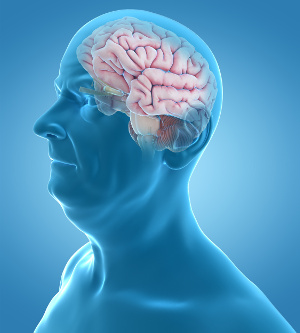 There seems to be a relation between ageing, Alzheimer’s disease, and the widespread problems with selenium deficiency. According to a new study that is published in Antioxidants, scientist have revealed how different selenium-containing proteins can affect pathological processes in the brain that are known to cause Alzheimer’s disease. They believe selenium may have therapeutical potential in the treatment of this disease, which is one of the greatest disease burdens and a leading cause of death among seniors. Selenium also helps in the prevention of the disease, which is extremely important because it is often difficult to diagnose Alzheimer’s disease in its early stages.
There seems to be a relation between ageing, Alzheimer’s disease, and the widespread problems with selenium deficiency. According to a new study that is published in Antioxidants, scientist have revealed how different selenium-containing proteins can affect pathological processes in the brain that are known to cause Alzheimer’s disease. They believe selenium may have therapeutical potential in the treatment of this disease, which is one of the greatest disease burdens and a leading cause of death among seniors. Selenium also helps in the prevention of the disease, which is extremely important because it is often difficult to diagnose Alzheimer’s disease in its early stages. The brain is particularly vulnerable towards oxidative stress and local inflammation that can set the stage for Alzheimer’s disease and other neurological conditions. However, it turns out that certain selenium-containing antioxidants are able to protect the brain neurons against damage. Also, selenium supplements can improve cognitive performance in patients suffering from mild cognitive impairment and Alzheimer’s disease, according to a meta-analysis that is published in Nutrients.
The brain is particularly vulnerable towards oxidative stress and local inflammation that can set the stage for Alzheimer’s disease and other neurological conditions. However, it turns out that certain selenium-containing antioxidants are able to protect the brain neurons against damage. Also, selenium supplements can improve cognitive performance in patients suffering from mild cognitive impairment and Alzheimer’s disease, according to a meta-analysis that is published in Nutrients.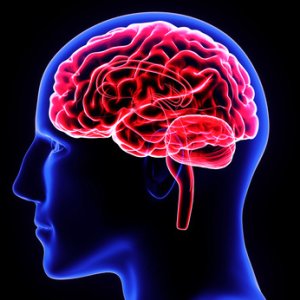 It is commonly known that vitamin C has an essential role in our connective tissue and immune defense. However, vitamin C is also vital for the brain. This was demonstrated in a new Australian study of the link between vitamin C and cognitive functions like memory, lingual skills, calculation, and orientation. The scientists also point to the fact that vitamin C deficiency is rather common in western countries, either due to dietary factors or because of conditions that increase the need for the nutrient.
It is commonly known that vitamin C has an essential role in our connective tissue and immune defense. However, vitamin C is also vital for the brain. This was demonstrated in a new Australian study of the link between vitamin C and cognitive functions like memory, lingual skills, calculation, and orientation. The scientists also point to the fact that vitamin C deficiency is rather common in western countries, either due to dietary factors or because of conditions that increase the need for the nutrient.
 Lack of vitamin B12 is known to cause fatigue, poor memory, cognitive impairment, and hippocampal atrophy. Supplementation with B12, on the other hand, can improve cognitive functions, according to a study that is published in Nutrients. The problem is that the signs of cognitive disturbance are insidious and therefore not automatically associated with a simple nutrient deficiency that is often a result of ageing, vegetarian diets, low stomach acid, or diabetes medication.
Lack of vitamin B12 is known to cause fatigue, poor memory, cognitive impairment, and hippocampal atrophy. Supplementation with B12, on the other hand, can improve cognitive functions, according to a study that is published in Nutrients. The problem is that the signs of cognitive disturbance are insidious and therefore not automatically associated with a simple nutrient deficiency that is often a result of ageing, vegetarian diets, low stomach acid, or diabetes medication. Alzheimer’s disease causes the brain to malfunction and is therefore the leading cause of dementia. According to a new American study, a particular form of vitamin B3 may help prevent neurological damage and therefore has a positive impact on Alzheimer’s patients. As part of the prevention of this disease, it is also important to make sure to get plenty of all the other nutrients.
Alzheimer’s disease causes the brain to malfunction and is therefore the leading cause of dementia. According to a new American study, a particular form of vitamin B3 may help prevent neurological damage and therefore has a positive impact on Alzheimer’s patients. As part of the prevention of this disease, it is also important to make sure to get plenty of all the other nutrients.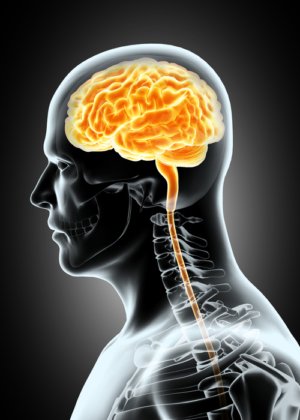 Most people think of vitamin C in connection with the immune defense, but as it turns out, the largest concentration of vitamin C is actually found in the brain. This is because vitamin C is enormously important for the energy turnover, the nervous system, and the cognitive skills, and this is described in a new review article. There is also evidence of widespread vitamin C deficiency, which may eventually impair cognitive skills and increase the risk of dementia and Alzheimer’s disease. If a pregnant woman lacks vitamin C, it can disrupt the development of the baby’s brain. There is a number of factors that increase our need for the nutrient, so the big question is how much do we need to secure optimal brain function throughout life?
Most people think of vitamin C in connection with the immune defense, but as it turns out, the largest concentration of vitamin C is actually found in the brain. This is because vitamin C is enormously important for the energy turnover, the nervous system, and the cognitive skills, and this is described in a new review article. There is also evidence of widespread vitamin C deficiency, which may eventually impair cognitive skills and increase the risk of dementia and Alzheimer’s disease. If a pregnant woman lacks vitamin C, it can disrupt the development of the baby’s brain. There is a number of factors that increase our need for the nutrient, so the big question is how much do we need to secure optimal brain function throughout life? According to a large American study, a high dietary intake of vitamin D and calcium is associated with a lower risk of early-onset menopause, where the menstrual periods cease before a woman reaches 45 years of age. Premature menopause affects around 10 percent of women, and the condition increases the risk of impaired fertility, osteoporosis, cardiovascular disease, and earlier cognitive impairment. The prevention of these diseases is also a matter of getting enough sunshine, magnesium, and omega-3.
According to a large American study, a high dietary intake of vitamin D and calcium is associated with a lower risk of early-onset menopause, where the menstrual periods cease before a woman reaches 45 years of age. Premature menopause affects around 10 percent of women, and the condition increases the risk of impaired fertility, osteoporosis, cardiovascular disease, and earlier cognitive impairment. The prevention of these diseases is also a matter of getting enough sunshine, magnesium, and omega-3. Recent studies reveal that vitamin D and omega-3 fatty acids are able to prevent and ameliorate a number of neurological ailments such as depression, ADHD, bipolar disorder, autism, and schizophrenia. There is evidence suggesting that vitamin D and omega-3 fatty acids work by controlling the synthesis of serotonin in the brain. The listed neurological conditions are all characterized by defects in the body’s synthesis of this important neurotransmitter. It is therefore vital to get plenty of sunshine, vitamin D, and omega-3 fatty acids, as widespread deficiencies in all three most likely contribute to the increasing rate of different neurological disorders.
Recent studies reveal that vitamin D and omega-3 fatty acids are able to prevent and ameliorate a number of neurological ailments such as depression, ADHD, bipolar disorder, autism, and schizophrenia. There is evidence suggesting that vitamin D and omega-3 fatty acids work by controlling the synthesis of serotonin in the brain. The listed neurological conditions are all characterized by defects in the body’s synthesis of this important neurotransmitter. It is therefore vital to get plenty of sunshine, vitamin D, and omega-3 fatty acids, as widespread deficiencies in all three most likely contribute to the increasing rate of different neurological disorders.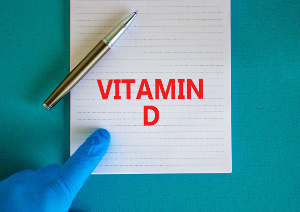
 Dementia is on the rise across the globe but according to a study from University of South Australia, vitamin D may have the potential to pull the brake on the degenerative processes. The scientists have observed a direct link between the widespread problems with vitamin D deficiency and the increasing rate of dementia. At the same time, they assume that optimizing people’s vitamin D status in the blood may help prevent millions of dementia cases worldwide. The need for vitamin D varies from person to person, it should be noted, and many people have a higher need for the vitamin than what is officially recommended.
Dementia is on the rise across the globe but according to a study from University of South Australia, vitamin D may have the potential to pull the brake on the degenerative processes. The scientists have observed a direct link between the widespread problems with vitamin D deficiency and the increasing rate of dementia. At the same time, they assume that optimizing people’s vitamin D status in the blood may help prevent millions of dementia cases worldwide. The need for vitamin D varies from person to person, it should be noted, and many people have a higher need for the vitamin than what is officially recommended. The risk of dementia and neurological disorders increases with age. Diet plays an important role and it is assumed that the widespread lack of vitamin K2 is particularly relevant. In order to test this hypothesis, a group of scientists measured levels of vitamin K2 in the brains of deceased seniors. They found significantly fewer cases of cognitive decline, dementia, and Alzheimer’s disease in brains with higher K2 levels. This has something to do with the fact that vitamin K2 counteracts atherosclerosis, accumulation of harmful protein, and brain inflammation. The study is published in the journal Alzheimer’s & Dementia and sheds a whole new light on vitamin K’s potential role in brain health and the importance of getting enough of this nutrient.
The risk of dementia and neurological disorders increases with age. Diet plays an important role and it is assumed that the widespread lack of vitamin K2 is particularly relevant. In order to test this hypothesis, a group of scientists measured levels of vitamin K2 in the brains of deceased seniors. They found significantly fewer cases of cognitive decline, dementia, and Alzheimer’s disease in brains with higher K2 levels. This has something to do with the fact that vitamin K2 counteracts atherosclerosis, accumulation of harmful protein, and brain inflammation. The study is published in the journal Alzheimer’s & Dementia and sheds a whole new light on vitamin K’s potential role in brain health and the importance of getting enough of this nutrient. "After about one week of taking the Q10 supplement I could feel a huge difference," says 23-year old Alan Piccini, who has been suffering from extreme fatigue and muscle aches ever since he was a child.
"After about one week of taking the Q10 supplement I could feel a huge difference," says 23-year old Alan Piccini, who has been suffering from extreme fatigue and muscle aches ever since he was a child. “Taking capsules with co-enzyme Q10 has freed me of the severe side effects of my cholesterol lowering medicine,” Mrs Franken explains.
“Taking capsules with co-enzyme Q10 has freed me of the severe side effects of my cholesterol lowering medicine,” Mrs Franken explains.